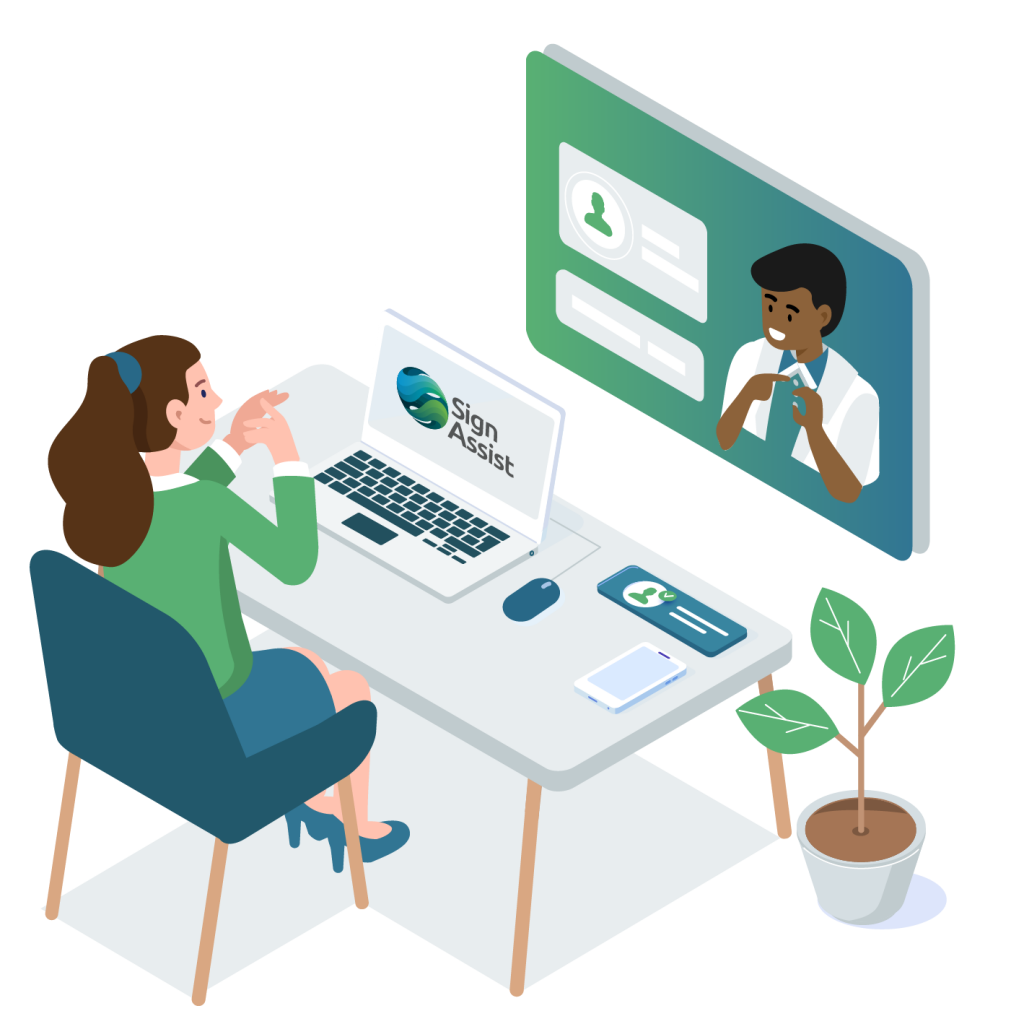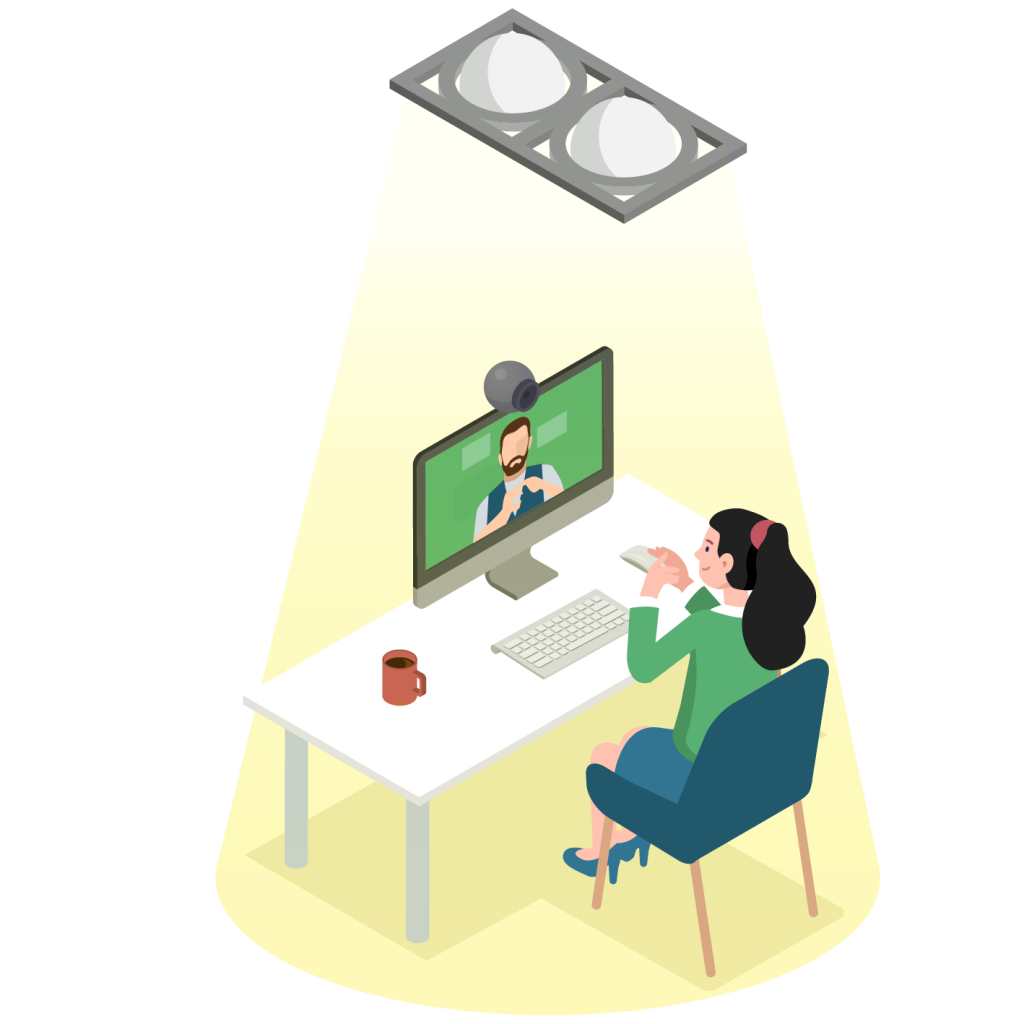Sign Assist: Introducing our ground-breaking service for Deaf people

This May, Connect Assist is launching what we believe is a UK first, Sign Assist: a helpline for Deaf and hearing-impaired people, staffed by Deaf and hearing impaired advisors.
There really couldn’t be a better time to introduce Sign Assist to the world, what with this week being Deaf Awareness Week. We’re kicking things off by running a three-month pilot on behalf of one of our charities – before long, we hope plenty more organisations will be using the service, which is set to transform how businesses communicate with their Deaf customers.
Where it all started
We’re always looking for ways to improve our services. Last year, we were exploring inclusivity and it struck us that Deaf and hearing-impaired people couldn’t use our helplines.
Sure, they can use email and chat, but those services can be impersonal and don’t lend themselves to people in crisis – or even those who simply want a shoulder to lean on.
We run services for several military veteran charities, as well as an international musicians’ mental health charity. Many of their service users have hearing impairments, which got us thinking about offering helplines with British Sign Language (BSL) interpretation. As the pandemic accelerated people’s acceptance of video conferencing, we felt the time was right for a Deaf phone service!
Employing Deaf advisors
We worked with a leading deaf consultancy company terptree, which advises organisations about Deaf and hearing-impaired people. They brought about a sea change in our thinking.

They made it very clear that, accomplished though BSL interpreters are, they don’t live the same day-to-day life as Deaf people and can’t always pick up on the nuances of body language and sign language.
Plus, third-party interpretation services are cumbersome: there’s a lot of toing and froing before a query is answered and they’re not very empathic, either: if you’ve got real issues in your life – say, you’re suffering mental health problems, or you’re about to be made homeless – you want to talk to somebody directly. In many areas of service, we recognised that three can be a crowd.
So, we decided to train Deaf people as advisors so that they can support callers directly. They are passionate believers in BSL, better placed to understand the lives of fellow Deaf people, and able to offer a truly empathic service.
As an added bonus, this approach creates jobs for talented people in our call centre for deaf people who might otherwise struggle to find employment, which is brilliant.
The right space and tech
Launching Sign Assist has meant making some changes to our offices.
We’ve created a unique working space for our Deaf advisors, so there are no distractions such as people walking behind them. The viewers’ eyes can instead focus on the body, lips and hands.

You can’t rely on fuzzy laptop webcams if you need to lip read and pick up on body language, so we’ve installed high-res Logitech cameras and very clear lighting.
And, to ensure our colleagues’ health and safety, we’ve had to upgrade things like fire alarms across all our buildings to include strobe lighting.
Welcoming our new colleagues
Internal communications are also important: we don’t want our new colleagues to feel isolated. So, we’ve offered all our staff BSL training, and have bought transparent face masks to enable lip reading.
We’ve distributed guides to all staff on best practice when Teams calling a Deaf colleague i.e make sure your internet connection is strong, face the camera head on, slow down your speech to make lip reading easier etc.
In video meetings, our Deaf colleagues can also use real-time transcripts, or we can get BSL interpreters where necessary.
I’m delighted to say that one Deaf team leader and two advisors have now joined the Sign Assist team. They’re trained up and raring to go!
The pilot scheme
This three-month trial will be a period of research and development for us.
We think our concept is brilliant, but we don’t yet know what demand will be like as nobody’s offered this service before.
We believe Sign Assist will really hit the mark, and we’ve got a couple of clients lined up if our pilot scheme is a success.
But, we think it could be the start of something much bigger. We’d like to be training advisors for charities, local authorities and even commercial companies.
So, when Deaf people go to those organisations’ websites, they’ll see that they offer real-time BSL helplines and know that they are valued as service users/customers.
Next steps
We’re already talking to lots of companies, explaining how they can now reach a community they couldn’t reach before.
Most importantly, we’re networking with the Deaf community, whose input will be vital as we assess our trial scheme. We’re asking: what services can’t you reach at the moment? Where would BSL helplines be useful to you? How can we improve? And, we’d also love to hear your feedback on LinkedIn and Twitter. Make sure you use the hashtag #jointheconversation.
I’m really excited about Sign Assist, and look forward to seeing how it progresses. Watch this space!







